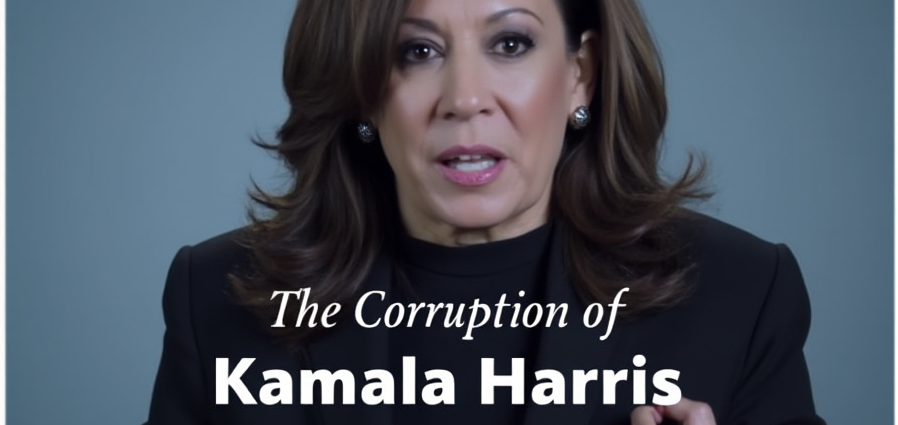Kamala Harris, the Vice President of the United States, has had a career marked by controversy. While she has broken barriers as the first female, first “Black”, and first South Asian Vice President, her career has also been scrutinized for various allegations of corruption and ethical lapses. This article delves into some of the key controversies that have surrounded Kamala Harris throughout her political journey.
Early Career and Prosecutorial Misconduct
Kamala Harris began her career as a prosecutor in Alameda County, California, before becoming the District Attorney of San Francisco in 2004. During her tenure, she faced accusations of prosecutorial misconduct, including:
- Withholding Evidence: In 2010, a San Francisco judge ruled that Harris’s office had violated defendants’ rights by failing to disclose that a police crime lab technician had been accused of skimming cocaine from evidence. This scandal led to the dismissal of over 600 drug cases, raising questions about the integrity of her office and its commitment to justice. The judge’s ruling highlighted systemic issues within the office, including inadequate oversight and a lack of transparency.
- Wrongful Convictions: Critics have pointed to cases where Harris’s office fought to uphold wrongful convictions, even when there was evidence suggesting the innocence of the accused. One notable case involved George Gage, a man convicted of sexually abusing his stepdaughter. Despite new evidence that cast doubt on the conviction, Harris’s office argued against his release. This case, among others, has been cited as an example of Harris prioritizing prosecutorial wins over justice.
Attorney General of California
As Attorney General of California from 2011 to 2017, Harris’s actions continued to draw criticism:
- Prison Labor: Harris’s office argued in court that releasing non-violent offenders would deplete the state’s pool of prison labor, which was used for tasks such as fighting wildfires. This stance was widely condemned as prioritizing cheap labor over human rights. Critics argued that it reflected a troubling willingness to exploit incarcerated individuals for economic gain, undermining efforts to reform the criminal justice system.
- Mortgage Settlement: Harris played a significant role in negotiating a $25 billion settlement with the nation’s largest mortgage servicers over foreclosure abuses. However, critics argue that the settlement was insufficient and failed to provide adequate relief to homeowners who had been wronged. While the settlement was touted as a victory for consumers, many felt that it did not go far enough in holding financial institutions accountable or in compensating those who had lost their homes.
- Transgender Inmate Rights: Harris faced criticism for her office’s defense of the state’s position in denying gender reassignment surgery to transgender inmates. Although she later expressed regret for this stance, the incident raised concerns about her commitment to LGBTQ+ rights and the humane treatment of incarcerated individuals.
U.S. Senate and Beyond
Kamala Harris was elected to the U.S. Senate in 2016, where she continued to face allegations of corruption:
- Campaign Contributions: Harris has been criticized for accepting campaign contributions from corporate interests, including the pharmaceutical industry and big tech companies. Critics argue that these contributions have influenced her policy positions and legislative actions. For example, her stance on healthcare has been scrutinized, with some suggesting that her ties to pharmaceutical companies may have impacted her support for certain policies.
- Political Maneuvering: Some have accused Harris of political opportunism, pointing to her shifting positions on issues such as healthcare and criminal justice reform. Her critics argue that these changes are driven by political calculations rather than genuine conviction. For instance, Harris initially supported “Medicare for All” but later backed away from the proposal, leading some to question her consistency and commitment to progressive values.
- Questionable Alliances: During her Senate tenure, Harris formed alliances with powerful figures and organizations, some of which have been controversial. Her relationship with law enforcement agencies, despite her advocacy for criminal justice reform, has been particularly contentious. Critics argue that these alliances may have compromised her ability to push for meaningful change.
Vice Presidency and Current Controversies
As Vice President, Kamala Harris continues to navigate a complex political landscape, facing both praise and scrutiny:
- Border Crisis Management: Harris has been tasked with addressing the root causes of migration from Central America. However, her handling of the border crisis has been criticized for a perceived lack of urgency and effectiveness. Critics argue that her approach has been more about political optics than substantive solutions.
- Workplace Culture: Reports have emerged alleging a toxic work environment within Harris’s office, characterized by high staff turnover and complaints of mismanagement. These reports have raised questions about her leadership style and ability to manage a team effectively.
Kamala Harris’s journey has not been without controversy. Allegations of corruption and ethical lapses have followed her from her early days as a prosecutor to her current role as Vice President. As with any public figure, it is essential to scrutinize and hold accountable those in positions of power, ensuring that they act in the best interests of the people they serve.


Hi, this is a comment.
To get started with moderating, editing, and deleting comments, please visit the Comments screen in the dashboard.
Commenter avatars come from Gravatar.